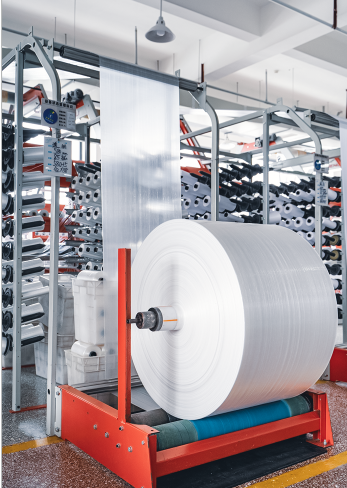What are polypropylene bags? Polypropylene bags are the bags you see where sugar, flour, corn, and more are packed. They’re remarkably strong, making them ideal for a wide range of applications.
Their strength is derived from the inherent properties of polypropylene, the manufacturing process, and the specific design of the bag.
Polypropylene is a thermoplastic polymer known for its high tensile strength, abrasion resistance, and flexibility. These properties make polypropylene bags ideal for handling heavy loads without tearing or breaking.
Additionally, polypropylene has excellent resistance to moisture and chemicals, further enhancing the durability of the bags in diverse conditions.
The technology and testing involved in the manufacturing process of polypropylene bags play a crucial role in determining their strength. Some of these factors are:
The interlacing of polypropylene fibers creates a strong, fabric-like structure. The tighter the weave, the greater the bag’s strength.
Thicker polypropylene bags naturally have higher load-bearing capacity.
Adding layers of polypropylene or other materials can enhance strength and durability.
Reinforced seams and strong stitching are crucial for preventing failure under stress.
Rigorous quality control and testing procedures are employed to assess the strength of these bags, including tests for load-bearing capacity, seam strength, and resistance to environmental factors.
These measures help guarantee that the polypropylene bags meet industry standards and can reliably hold the specified weight.
How much weight can a polypropylene bag hold? This depends on various factors, including the bag’s size, thickness, and the type of polypropylene used. Generally, polypropylene bags can safely carry loads significantly exceeding their weight. However, it’s essential to consider the specific application and the weight of the contents to avoid overloading.
Polypropylene bags exhibit remarkable strength. They are commonly used in various industries, including agriculture, construction, and retail, where they effectively hold and transport heavy goods.
The actual weight a polypropylene bag can hold depends on its design, thickness, and the quality of materials used. However, these bags are typically designed to handle weights ranging from 25 to 50 kilograms (55 to 110 pounds) and can even support higher loads when reinforced or specially designed.




